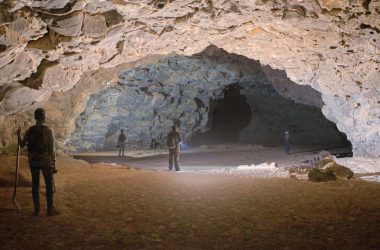Consider two scenarios. In the first, you have a life filled with love, meaning, and enough money to live comfortably. However, after your death, something terrible is revealed about you – even if it may not be true – and people come to despise you. In the second scenario, you have a life of relative hardship and obscurity, but after your death, it is revealed that you were an incredibly talented artist, and your reputation is assured forever. Which option would you choose?
If you chose the second scenario, you aren’t alone. Research conducted by Brett Waggoner at the University of Otago, New Zealand, shows that many people feel the same way. This thought experiment reveals our deep concern for leaving a legacy. Throughout history and across cultures, individuals have strived to etch their names into the history books through acts of creativity, discovery, and philanthropy. However, this behavior is paradoxical – why dedicate so much effort to being remembered when you won’t be around to witness the benefits?
Scientists and researchers have been exploring the reasons behind our desire for legacy and have come up with some surprising answers. Some argue that it provides an evolutionary advantage, while others see it as a result of cognitive biases. However, it is becoming increasingly clear that this desire for positive remembrance goes beyond self-aggrandizement. When nurtured in the right way, it can be harnessed to address long-term global issues, such as climate change and biodiversity.
The Evolutionary Advantage of Legacy
One possible explanation for our yearning for legacy is that it provides an evolutionary advantage. Throughout history, individuals who left a lasting impact were often seen as successful and influential. This could have attracted mates, ensured resources, and increased the chances of their genes being passed on to future generations. Therefore, the desire for legacy may be deeply ingrained in our genetic makeup.
Cognitive Biases and Legacy
On the other hand, some researchers argue that our desire for legacy is a result of cognitive biases. For example, the “self-serving bias” leads us to emphasize our positive qualities and downplay our flaws, making us more inclined to pursue actions that will enhance our reputation after we’re gone. Additionally, the “optimism bias” causes us to underestimate the likelihood of negative events, making us more willing to invest time and energy into leaving a positive legacy.
Leveraging Legacy for Global Issues
While the desire for legacy may have evolutionary and cognitive roots, it can also be leveraged to address pressing global issues. By tapping into our inherent need to be remembered positively, individuals and organizations can inspire actions that create a lasting impact. This can be seen in movements that advocate for sustainable practices, conservation efforts, and social change. When people feel that their contributions will be remembered and have a lasting effect, they are more motivated to take action.
Conclusion
Our yearning for legacy goes beyond personal gain or ego. It is a deep-seated desire to make a lasting impact and be positively remembered after we’re gone. Understanding the reasons behind this desire allows us to harness its power for the greater good. By nurturing and channeling the desire for legacy, we can tackle long-term global issues and create a better future for generations to come.








